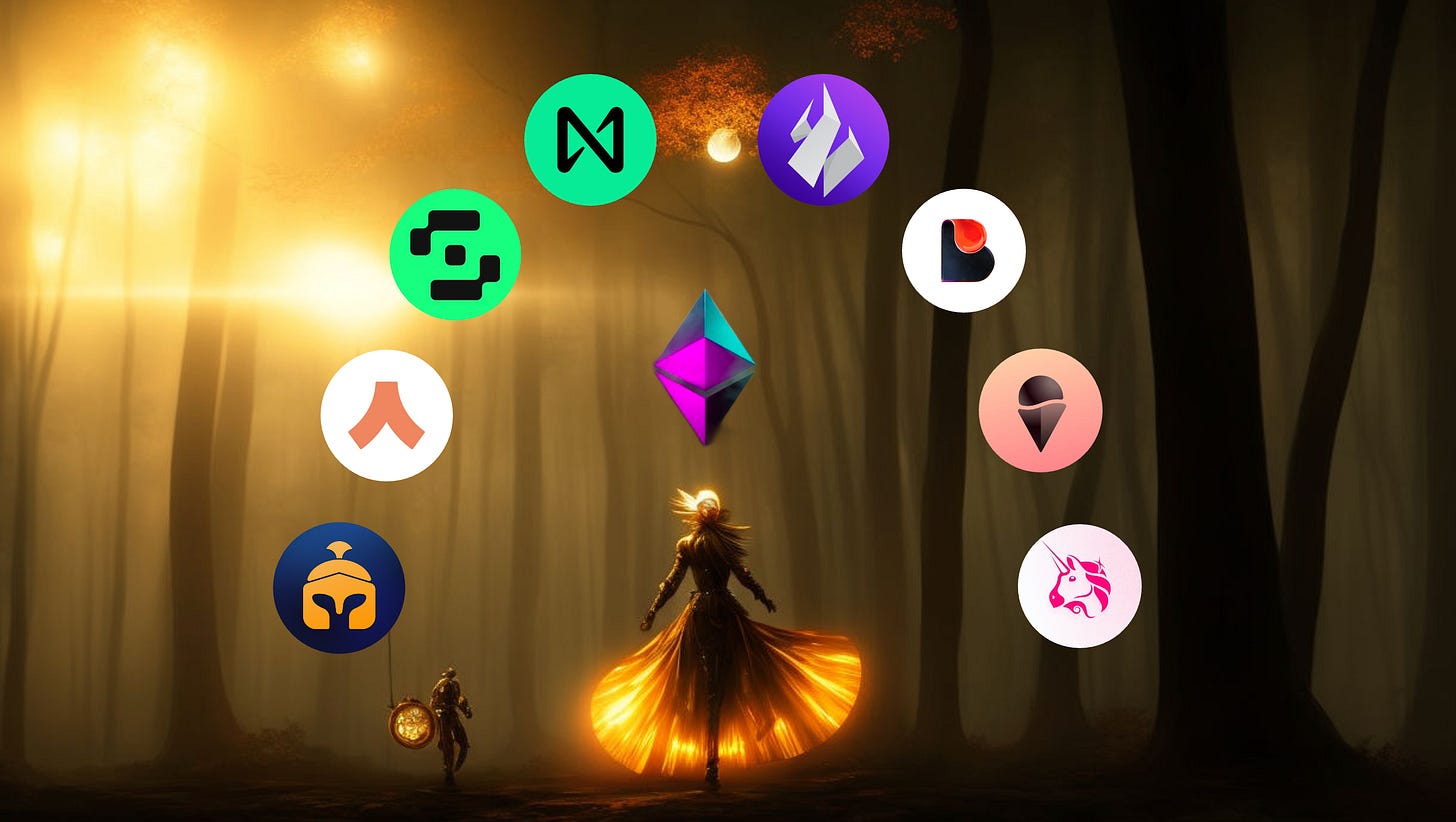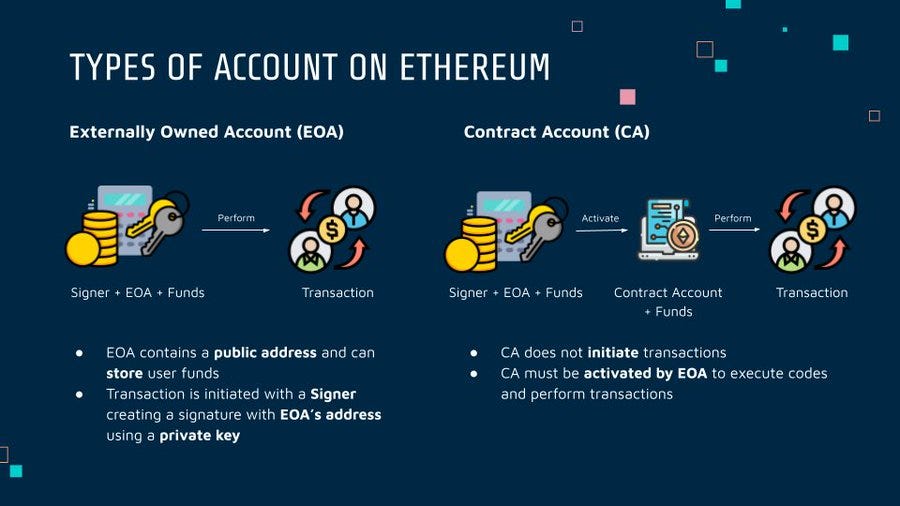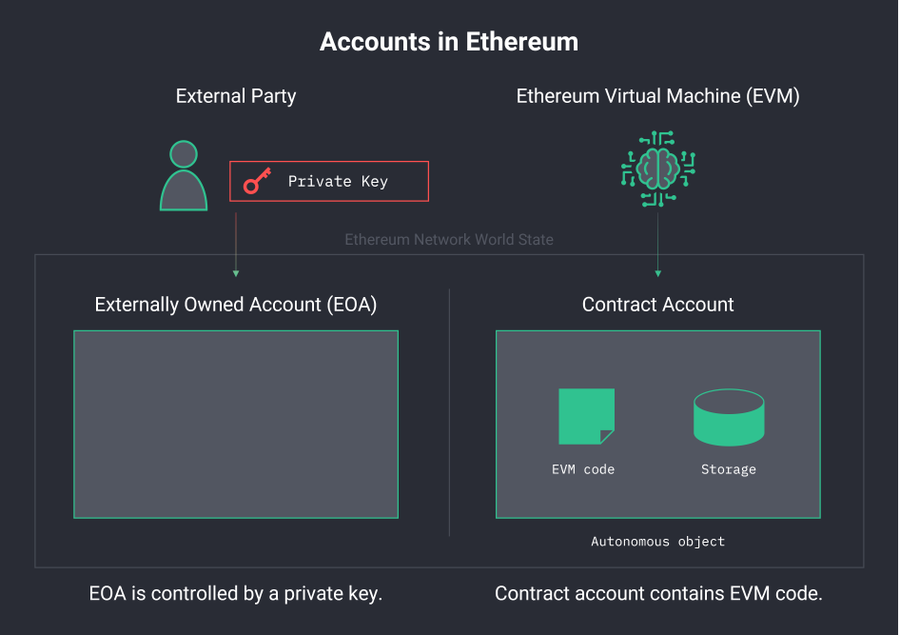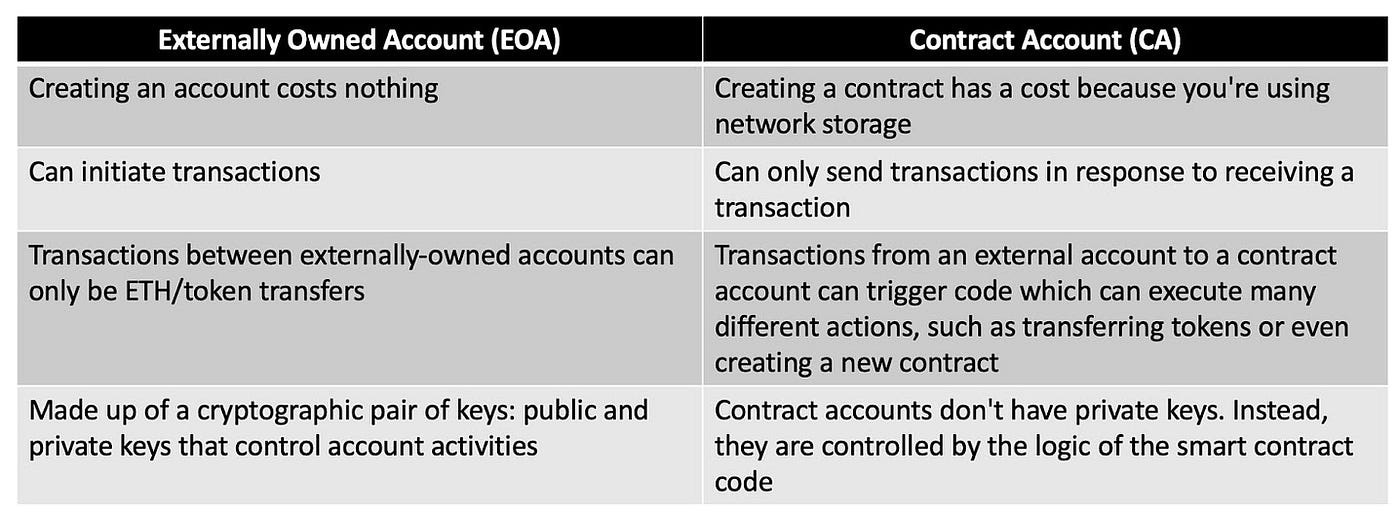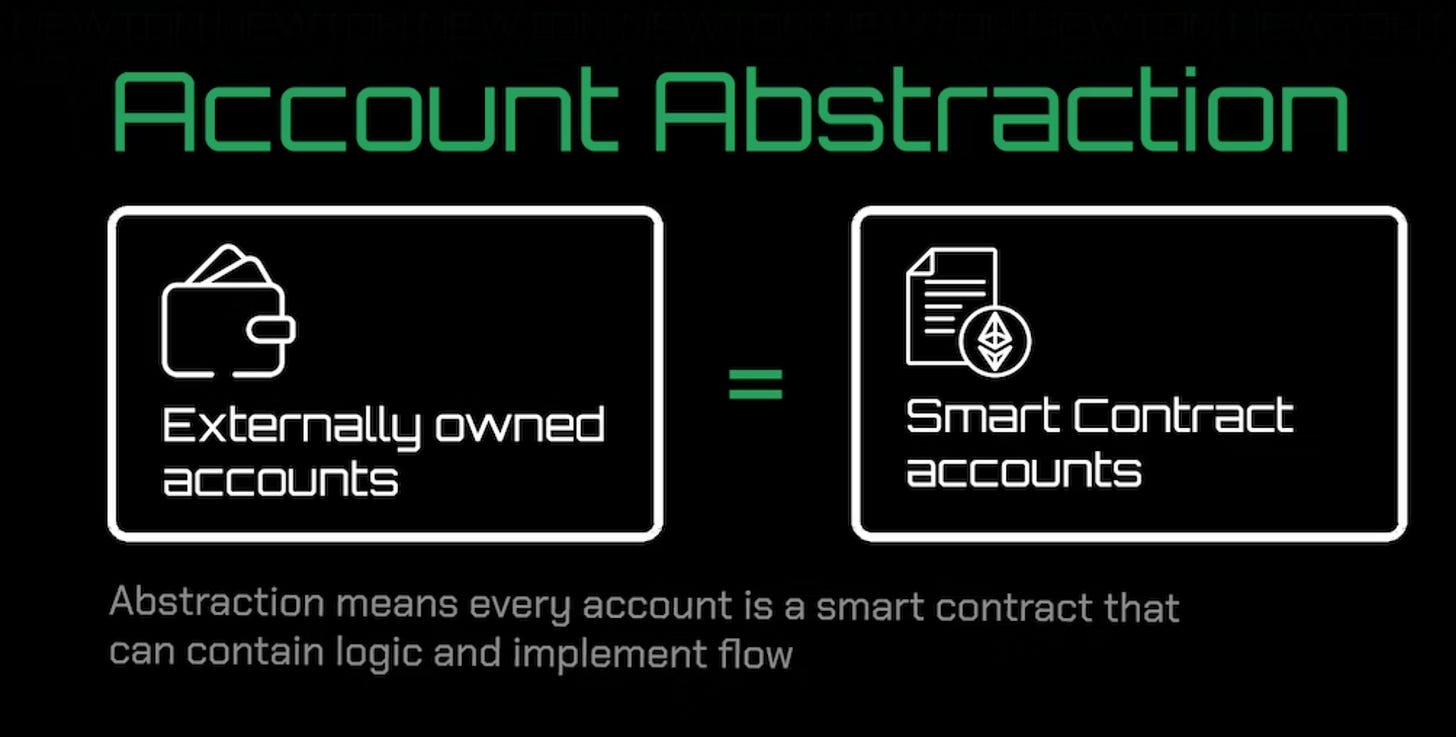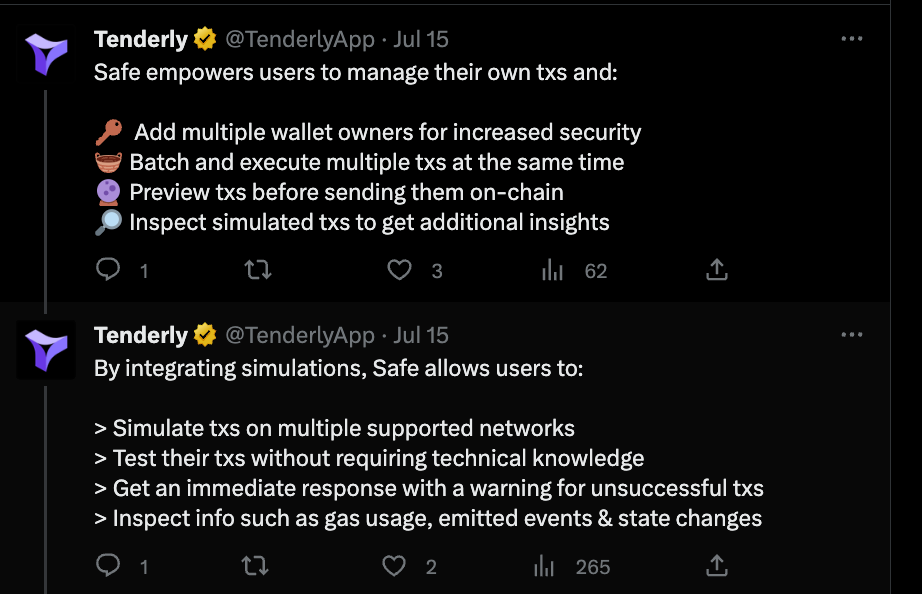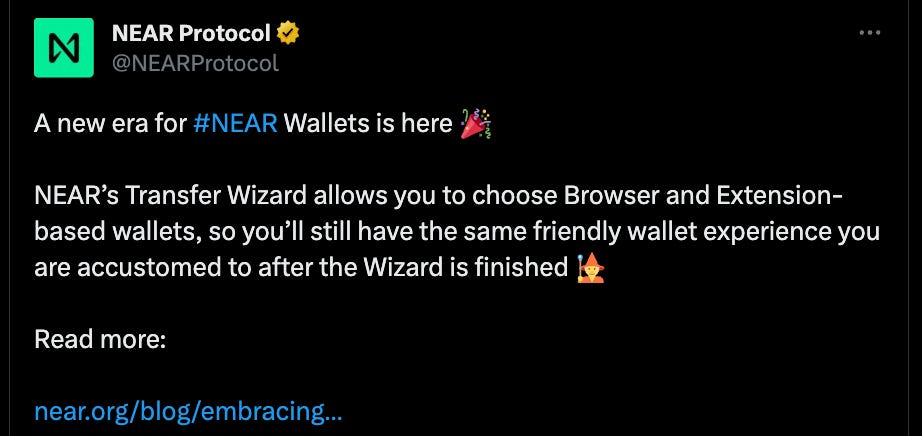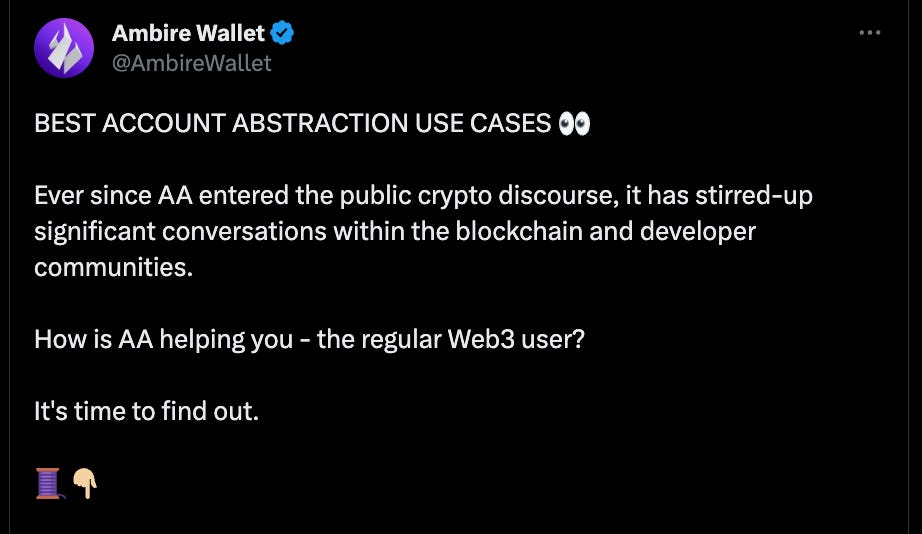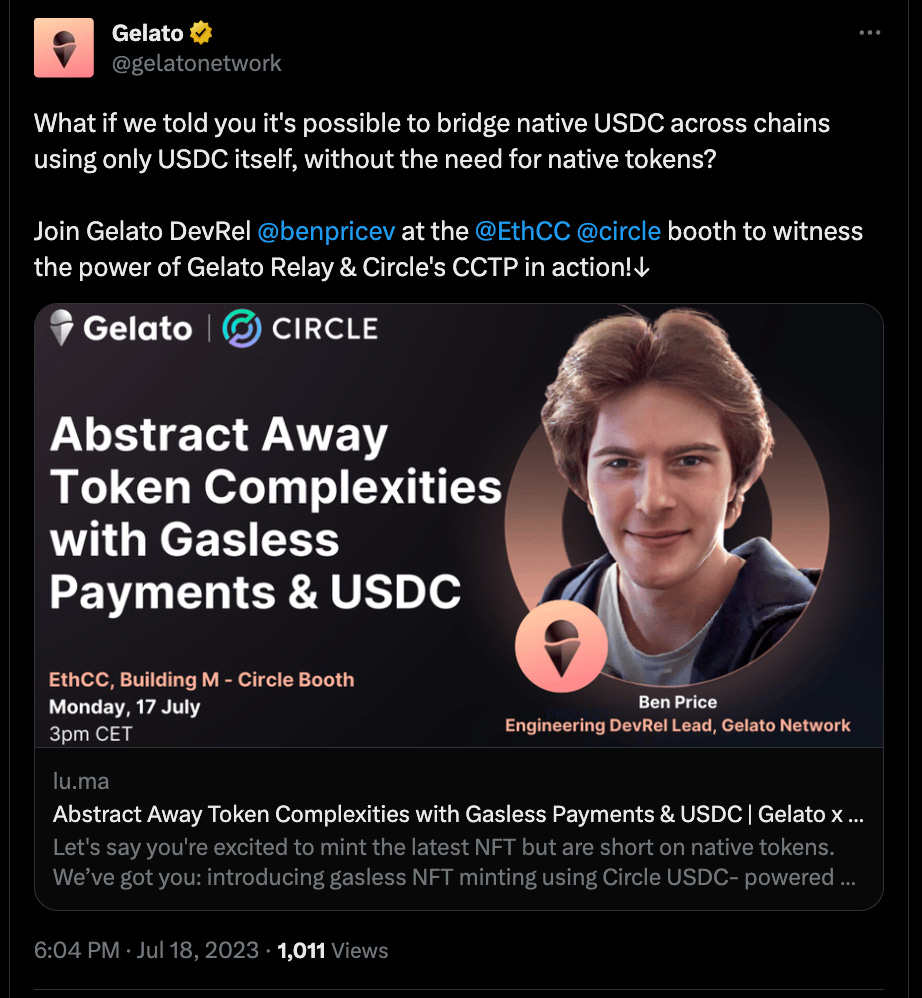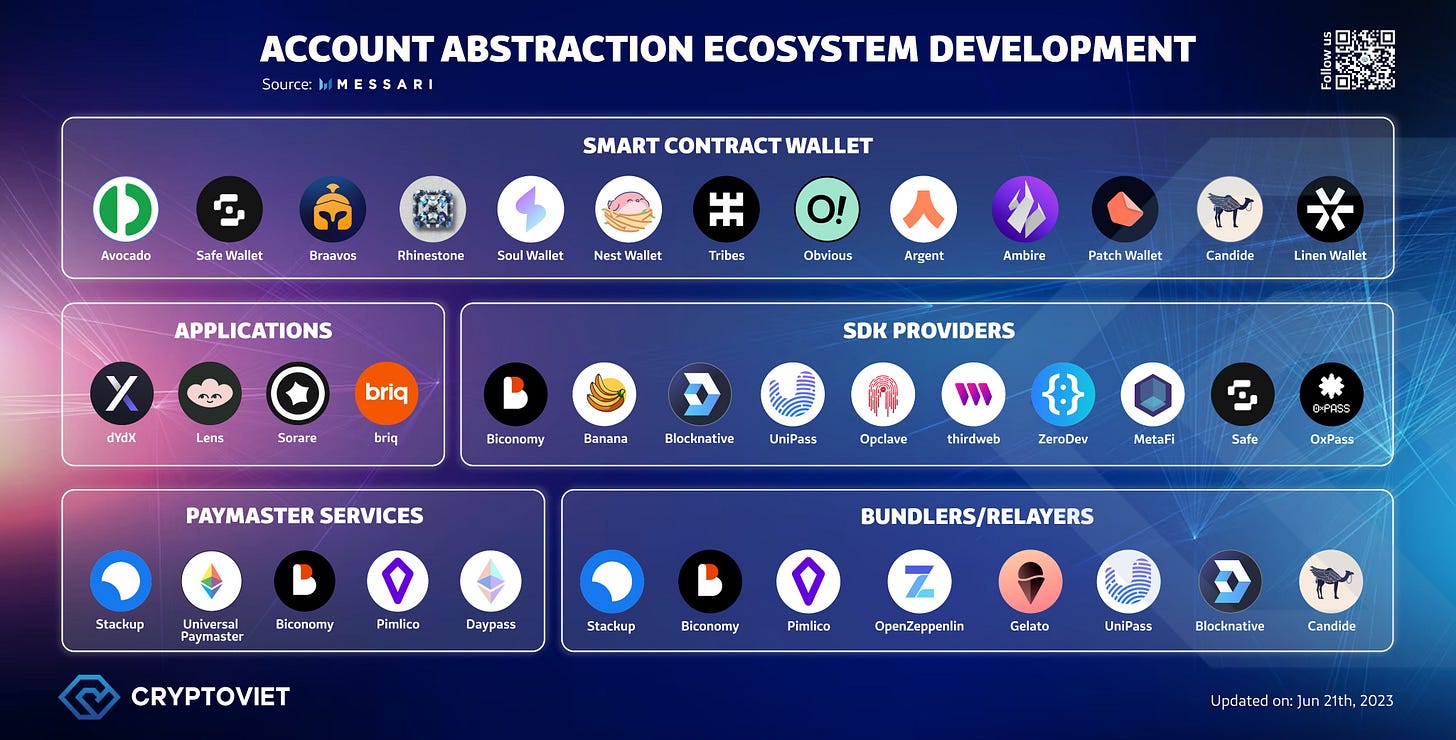I am constantly losing sleep over my funds in my wallet.
With account abstraction, accounts are free of phishing, seedless and transactions are gasless.
You can RIP and use wallets like your email
Deep dive + Top 10 projects mentioned by @VitalikButerin 🧵 👇
In this mega-research thread, I will share all that you need to know about AA and some protocols that were mentioned by Vitalik.
1️⃣ Background of Web3 wallets
2️⃣ EOA vs Contract account
3️⃣ Account Abstraction (AA)
4️⃣ Top 10 AA
5️⃣ All AA protocols
6️⃣ Use Cases
1️⃣ Background of Web3 Accounts
Today there are 2 account types on Ethereum:
Externally Owned Accounts (EOAs) are user-controlled accounts holding assets and sending transactions. EOAs are controlled by external private keys.
Contract accounts are controlled by smart contract code deployed to Ethereum. This code defines their behavior allowing them to act autonomously as programs. Contract accounts can hold assets, execute code in response to transactions, and interact with other contracts.
Credits to: @ngweihan_eth
https://twitter.com/ngweihan_eth/status/1633114099058917377
What are are most familiar with and are using on a frequent basis EOAs, which your familiar web3 wallets like MM, Rabby, Coinbase wallet, Trust wallet and so on.
Both EOA and contract accounts can hold assets, but the latter allow for the programming of complex logic.
Credits to: @SomonePr
https://twitter.com/SomonePr/status/1681515845502242817
Using EOA wallets have its limitations and presents barriers to mainstream crypto adoption and for the decentralized applications built on it.
Private key management is a major burden - if keys are lost, users lose access forever.
EOAs are vulnerable to theft if keys are compromised. No recovery options.
EOAs have no built-in logic. They can only send basic transactions, not interact with smart contracts.
Poor user experience for non-technical users unfamiliar with crypto addresses.
Managing multiple EOAs is very cumbersome compared to traditional accounts.
Users want the convenience that they're accustomed to from web2 services i.e. email accounts, single sign on (log in from google/facebook)
2️⃣ EOA vs Contract account
Contract accounts provide much more flexibility and powerful functionality compared to EOAs
Permissioned control
Contract accounts allow defining granular permission levels like multisig.
EOAs grant full control to the private key holder.
Batch transactions
Contract accounts can batch multiple transactions together efficiently.
EOAs require separate signatures.
Account recovery
Contract accounts can implement recovery logic on-chain.
EOAs rely solely on the private key, so loss means permanent loss.
Transaction limits
Contract accounts can implement customized logic like halting transactions during account recovery.
EOAs cannot control transactions programatically.
3️⃣ Account Abstraction (AA)
ERC-4337 is a new Ethereum Improvement Proposal (EIP) that introduces the concept of "account abstraction" to Ethereum. It allows for the creation of "smart accounts" - accounts that are controlled by smart contracts rather than private keys.
AA flips Ethereum's model from "users hold assets directly" to "smart contracts hold assets on behalf of users". This unlocks new account functionality impossible with normal EOAs.
AA in few words: Every account is a smart contract.
Credits to : @hackernoon
Some key features of AA:
Allows accounts to be recovered if the private key is lost, by storing recovery information on-chain. This removes the risk of losing funds forever if keys are misplaced.
Accounts can have additional logic and features programmed into them via smart contracts. For example, an account could have spending limits, allow transfers only to whitelisted addresses, or trigger other actions when receiving funds.
Accounts can be owned or managed by multiple keys (i.e. multi-sig), contracts, or other accounts. This enables more flexible account control schemes.
Accounts separate keys from contract logic. This enables keys to be changed without changing the associated contract code.
By abstracting away private key management, it opens the door to many new types of "smart" accounts with advanced features. This could help make decentralized apps much easier to use for mainstream users unfamiliar with crypto key management.
AA unifies EOAs and contract accounts under one paradigm - smart contract-based accounts.
Here are some key benefits to users:
Logic like signing transactions is abstracted out into the smart contract code.
Improved flexibility with programmable accounts, where it can have these features: Multisig, 2FA, withdrawal limits, expiration of keys, etc.
Improved UX non-technical users:
Removes need to directly manage keys, which is error prone.
Allows account recovery if keys lost.
Able to hide blockchain complexity - feels like interacting with normal app accounts.
4️⃣ Top 10 AA
These are protocols being mentioned by Vitalik during ETHcc and they are bringing to life these benefits and features that was earlier mentioned.
Though these protocols mights have got Vitalik to shill in someway, they are bringing some amazing tech to the space.
Let’s see what value add they are bringing to the space.
Here are their cool features that they are bringing with AA:
@myBraavos launched their Hardware Signer feature that allows user to cancel the transaction request if the seed phase gets stolen
@argentHQ allows user to secure their account with 2FA like emails
@safe empowering users to manage their own assets and allowing for simulations
@NEARProtocol new wallet transition
@AmbireWallet brings the full suite of AA benefits: seedless, gas reduced…
@biconomy SDK brings web2 like experience..GASLESS?
@gelatonetwork now allows users user to bridge native USDC and GASLESS payments
@Uniswap introduces uniswapX..bullish.. but I dont know if this is related to AA
@TrustWallet
I didn’t find anything bullish about Trust wallet. I am seeing so much giveaways on their Twitter page.
@iSafePal
Same goes for Safe Pal too, nothing notable about it that got me excited, its page is full of AMAs and events sharing. Nothing much about product development, releases or and sort of new integration
Not sure what these 2 were mentioned by Vitalik but at the top of my mind it is just probably taking this chance for marketing?
5️⃣ All AA protocols
Probably one of the best infographic I found regarding protocols developing in the AA space.
Here is the full comprehensive list
Smart Contract Wallet :
@Instadapp @safe @myBraavos @rhinestonewtf @soulwallet_eth @nestwalletxyz @tribes_xyz @itsobvioustech @argentHQ @AmbireWallet @patchwallet @candidewallet @GetLinen
Application:
@dYdX @LensProtocol @Sorare @briqNFT
SDK Providers:
@biconomy @wallet_banana @blocknative @UniPassID @opclave @thirdweb @zerodev_app @metafi_wallet @safe @0xpass_io
Paymaster Services:
@stackup_fi @biconomy @pimlicoHQ
Bundlers/Relayers:
@stackup_fi @biconomy @pimlicoHQ @OpenZeppelin @gelatonetwork @UniPassID @blocknative @candidewallet
6️⃣ Use Cases
We’ve seen that AA streamlines user experience in crypto by enhancing operational speed, cost, security, and flexibility. I believe this will drive the next phase of mass adoption into crypto and it will be a competition amongst these protocols to onboard users the quickest.
Based on the examples that we have seen above, here is a summary of all the uses cases that AA can bring:
Seedless account
New Web Authentication Standard; single point of access
Multi-Signature Authorization
2FA as a Security Mechanism
Transaction Batching
Session Keys
Automative Recurring & Scheduled Payments
Transactions Simulation; simulate before siging
Instant Onboarding with FIAT On-Ramps
Withdrawal/Spending Limits; capping expenses
Account Inheritance/Social recovery
Gas Abstraction Mechanisms; reduced fees
Support For Quantum-Secure Algos
Twitter: https://twitter.com/arndxt_xo/status/1681691419285803009


